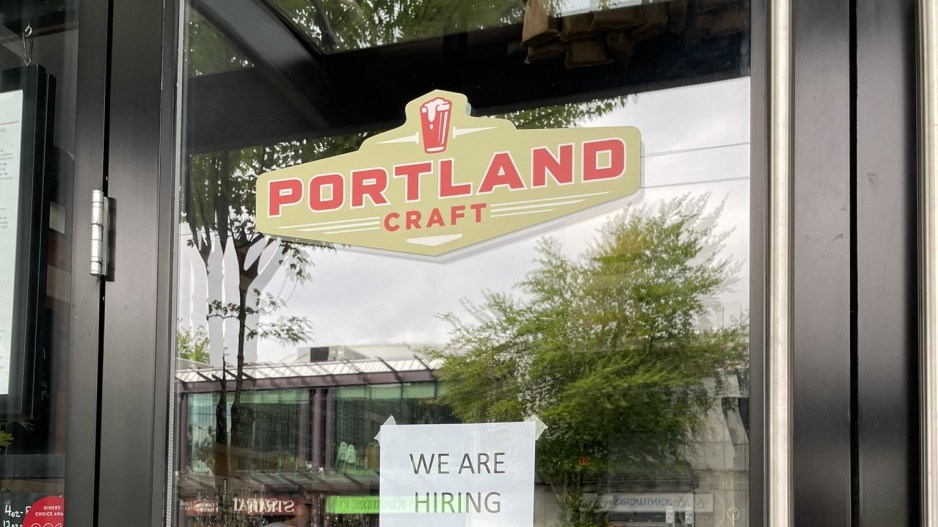A stroll down Vancouver’s Main Street — one of the city’s top hangout destinations — on any given day will reveal summer revelers eager to hit patios and spend some extra cash they’ve been sitting on during pandemic-induced restrictions.
And a glance at the front windows of those restaurants, pubs and cafes also reveals a common sight: Help Wanted.
“Employers across Canada are facing challenges, but conditions are especially tough in Quebec and British Columbia,” according to RBC economist Carrie Freestone.
In a report released Monday, Freestone described the labour market conditions in B.C. and Quebec as the “tightest” in Canada as West Coast employers navigate a 6% job vacancy rate as of June.
Quebec, the next closest province, is facing a 5.8% job vacancy rate (Manitoba has the lowest job vacancy rate in the country at 3.7%)
The challenges in B.C. are most acute in accommodation and food services: 6.7%.
“B.C. also recorded exceptional shortages in healthcare, as demand for nurses and care workers surged during the pandemic,” Freestone noted.
“In B.C., cooks accounted for the most frequently posted positions [+ 50% year over year].”
The economist found that at the outset of the pandemic, about 80% of workers within the hospitality sector had lost their jobs.
“More recently, they’ve been leaving voluntarily,” she said.
“For instance, in June, 60% of B.C. hospitality workers who were no longer working in the industry had voluntarily left their positions.”
And a boost in wages may not be a cure-all for the hiring headaches facing employers.
Vancouver-based fashion giant Lululemon Athletica Inc. (NASDAQ:LULU) announced last week it was increasing pay for employees to a minimum of US$15 or US$17 per hour, depending on the job and the geographic market workers were in.
The company is on the hunt for 8,000 more workers across North America, a trend pointing to challenges facing the food service and accommodation industry as competition heats up.
“While average weekly wages in accommodation and food services were 10% higher in June 2021 than two years earlier, average wages earned in this industry remained 57% below other service-sector jobs,” Freestone said.
“The gap helps explain why many workers are exiting the sector, perhaps permanently.”




